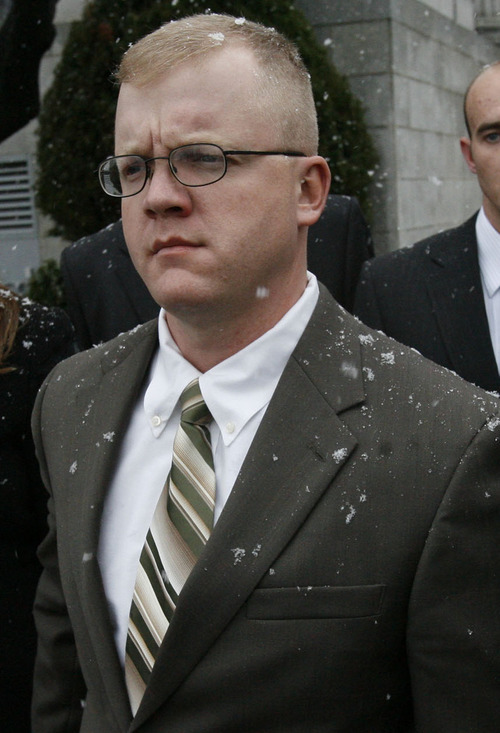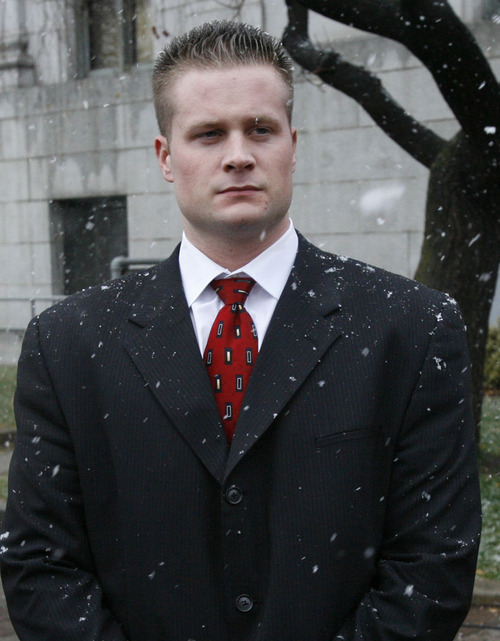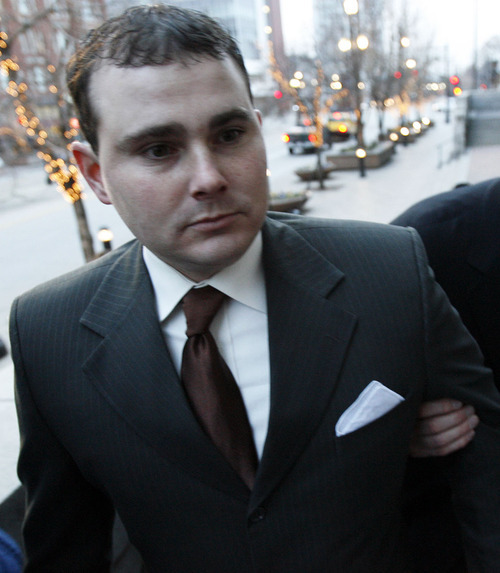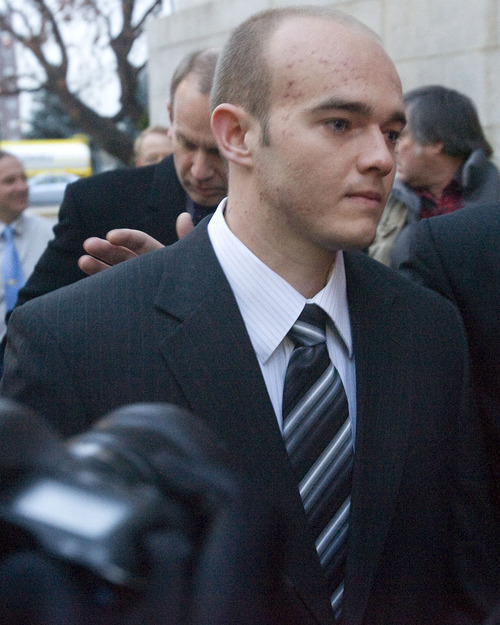This is an archived article that was published on sltrib.com in 2011, and information in the article may be outdated. It is provided only for personal research purposes and may not be reprinted.
Washington • An appeals court on Friday resurrected the case against four Blackwater Worldwide guards involved in a 2007 shooting in a Baghdad public square that killed 17 Iraqi citizens.
A federal trial judge in Washington, Ricardo Urbina, threw out the case on New Year's Eve 2009 after he found the Justice Department mishandled evidence and violated the guards' constitutional rights.
But a three-judge panel of the U.S. Court of Appeals ruled Friday that Urbina wrongly interpreted the law. It ordered that he reconsider whether there was any tainted evidence against four of the five defendants —former Marines Evan Liberty of Rochester, N.H.; Donald Ball of West Valley City, Utah; and Dustin Heard of Knoxville, Tenn.; and Army veteran Paul Slough from Keller, Texas.
The Justice Department has dismissed charges against the fifth defendant, Nick Slatten, a former U.S. Army sergeant from Sparta, Tenn.
When charged in 2008, Bell was working as a security officer at the Salt Lake city Justice Courts. Friends said the former Marine, who joined Blackwater after he left the service, aspired to become a police officer. Bell graduated from Cottonwood High School in 2001.
Blackwater security contractors were guarding U.S. diplomats when the guards opened fire in Nisoor Square, a crowded Baghdad intersection, on Sept. 16, 2007. Seventeen people were killed, including women and children, and 20 others wounded in a shooting that inflamed anti-American sentiment in Iraq.
North Carolina-based Blackwater, which renamed itself Xe Services after the shooting, said the guards were innocent and responding to an ambush by insurgents. Prosecutors said the shooting was unprovoked.
The U.S. rebuffed Iraqi demands that the U.S. contractors face trial in Iraqi courts. After a lengthy investigation, the U.S. Justice Department charged the five contractors with 14 counts of manslaughter and took a guilty plea from a sixth, Jeremy Ridgeway of California, who is cooperating with prosecutors and won't be sentenced until the case is resolved. Urbina's dismissal outraged many Iraqis, who said it showed Americans considered themselves above the law.
Hassan Jabir, a lawyer hit by gunfire in the deadly melee, described the appellate decision as a "big achievement for all those who were hurt by Blackwater's crime." "It is in our benefit and I'm very happy," Jabir said. "They must be convicted according to the Iraqi and American law."
The case against the five men initially fell apart because the State Department ordered the guards to explain what happened after the shooting in exchange for assurances that their statements would not be used in a criminal case. The five guards told investigators they fired their weapons, an admission that was crucial because forensic evidence could not determine who had fired.
Because of the immunity deal, prosecutors had to build their case without those statements, a high legal hurdle that Urbina said the Justice Department failed to clear. Prosecutors read those statements, reviewed them in the investigation and used them to question witnesses and get search warrants, Urbina said. Key witnesses also reviewed the statements and the grand jury heard evidence that had been tainted by those statements, the judge said.
Appellate judges Douglas Ginsburg, Merrick Garland and Stephen Williams ruled in a 17-page redacted review that Urbina "made a number of systemic errors based on an erroneous legal analysis." They ruled that Urbina excluded too much testimony and must reconsider for each defendant whether any evidence was tainted.
Defense attorneys declined to comment. Justice spokesman Dean Boyd said the department is pleased with the ruling and assessing its next steps.
The Salt Lake Tribune contributed to this report. —
Case reinstated
Still facing charges
Charges dropped









